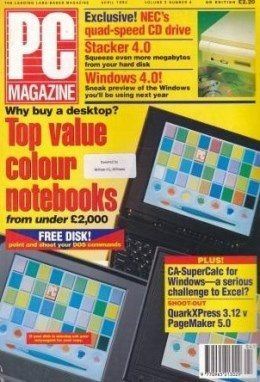
Why the Idea of Second-Hand PCs and Gadgets Appeals to Me
As I’ve already mentioned in “A Glance at Kaby Lake Processor from behind the Desk”, I’ve been considering upgrading my desktop system this coming Spring. I’ve been deciding between Kaby and Skylake processors, comparing their specs and such, and then my thoughts inevitably went back to the time when I bought my very first Microsoft based PC.
Now, this was a pathetic hand-me-down in some ways. A bulky, greyish and as heavy as hell machine. But, it had two indisputable advantages to me. It was cheap and it came with the display, as well as keyboard and mouse set to go with. The display was also a cumbersome cube, the ELT one, which back in 1998 was a hot thing, really. And when I write ‘hot’, I mean it, because you could warm your hands over it on cold days. It was crackled when turned up and radiated a stingy smell of plastic if you dared to work on it longer than 3 hours.
The previous owner had installed the CD-drive in the PC, but mercifully didn’t add up its cost in the final quote. Fresh from college and having just landed myself a job, I couldn’t afford a brand-new system. But, I needed one badly, and this large PC with a small pricetag was a gift from heaven. Or, so I thought.
Within a month or so, my PC wouldn’t boot. And since then, my geeky career started. The following week I called in for computer help every single day. It became like Groundhog’s Day for me. It went like this, I press the power button, the PC won’t boot, I call for a help, a man comes and presses some buttons and after a successful reboot, leaves. On his last visit, I surreptitiously put down everything he did, and the next day, simply repeated his steps. Magic! It worked! The problem ended up being that the motherboard was too old and the system wanted for a hard drive every time it booted. So, I had to enter BIOS every time I powered my desktop.
The video card was the second item that busted. It turned out that the card kept losing the pin connection and it took a heavy kick to click her back in place. So, my everyday routine went like, I press the power button, read No Signal on the screen, unscrew the side panel of the PC tower, push the video card back in place, press the Delete key to enter BIOS and define the Boot Device, and finally boot Windows. I subscribed to several geeks’ forums and finally bought myself a nice set of screwdrivers (I had to use a kitchen knife to open the PC body for the first time).
The positive thing about my experience with this computer, was that I wasn’t afraid to bust anything and ruin it. It was already very old and had been previously tampered with. I explored its possibilities and hardware, and little by little, came to not only understand my computer, but fall in love with working on it and learning new things. I still love them. Had I bought a brand-new PC from the store, I believe I’d have remained an apprehensive end-user who panics every time his system hiccups. When I finally earned enough to afford myself a new system, I sold this one to someone else. The last I heard about it, it worked as a home server. You see, it was not quick enough for heavy jobs, but it still could store files. Pentium II, 256 MB of HDD, 128 MB of RAM, God bless it.
I remember my first PC with a pang of nostalgia. Due to my experience with it, I’d learnt enough to know that the best PC is the one you get assemble yourself, or at the very least build on your own and have it assembled. But, the trends in the modern PC world make me sad. We’re being cut off from tweaking and upgrading our systems. It’s like with cars, you see. Once it took Bertha Benz a garter and a hatpin to get her car going. Back in 1970s and even 1980s, it took you a toolbox and a parking lot to fix your ride if there was nothing serious with it. Nowadays, one requires a computer to test the engine and electrics. You can only open your hood and stare in with a cryptic expression on your face these days, trying to see where the demon that broke your car lives. I’m not saying that fixing a car was just a piece of cake, but you could learn what to do it in an emergency if you set your mind to it, much like my first computer.
With PCs, the process is much subtler. If you look up the reviews and such, you’ll see that laptops, tablets and especially hybrids take up the largest segments of the market. Even laptops now, come with soldered CPU and RAM. You certainly can’t upgrade and sometimes, you can’t even open your own case. I’m writing this article with an Asus X540S. In order to get to the HDD and RAM drive, I have to remove the motherboard first, as it’s parked the other side about. On my previous ASUS of K50 series, there was a trap door in the bottom to get an access to the RAM at least.
So, the only way to get what you want is to assemble the desktop yourself. The best way to start from my experience, is to get yourself a nice second-hand PC and fiddle with it. You won’t become an engineering genius, but you’ll get to know how it’s made how it works. You’ll achieve a more advanced understanding of your system, and feel more at home when upgrading or if something happens that requires your work.
And of course, don’t just get rid of your old PCs. You can hand them over to to someone new, or sell it to us, here at iGotOffer.






Facebook
Twitter
RSS